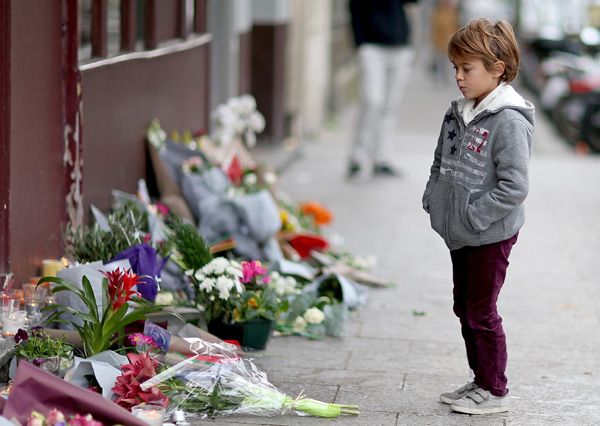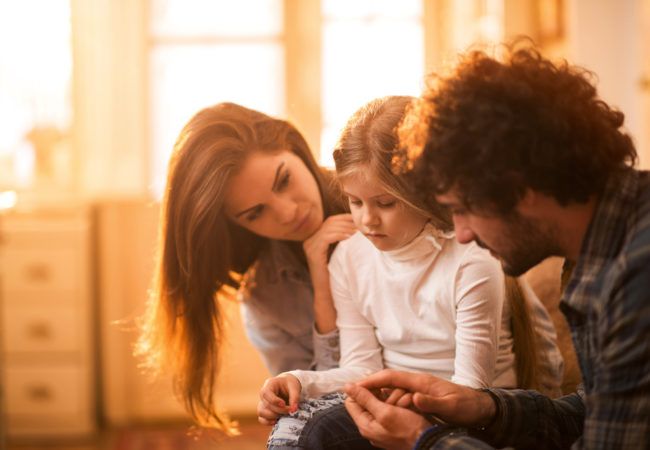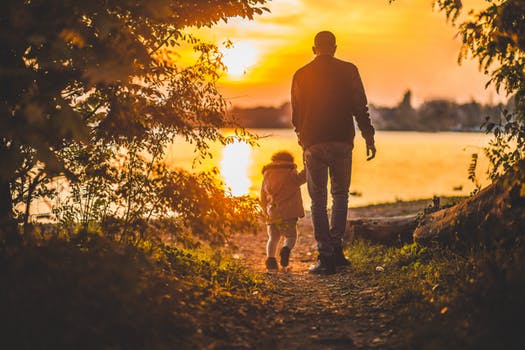Talking to Kids About Tragedies
When the unthinkable happens
A child's world can be a magical place filled with mythical creatures, colorful surroundings and wishes that always come true. Their imaginations often whisk them away to wonderful worlds ruled by benevolence and enchantment.
 Sadly, they also live in the sometimes harsh world of reality--a world that can bring situations that may be troubling for a child and hard for them to understand. Parents and caregivers often find themselves in the very difficult position of having to explain what is sometimes unexplainable.
Sadly, they also live in the sometimes harsh world of reality--a world that can bring situations that may be troubling for a child and hard for them to understand. Parents and caregivers often find themselves in the very difficult position of having to explain what is sometimes unexplainable.
Tragedies can cause unspeakable horror for those involved and can be frightening for children as well, even if they aren't directly affected. Children may be anxious about similar things happening to them or to someone they love. Feeling upset, scared or nervous after tragedy strikes is a normal reaction, even for adults. Talking to your kids about these experiences can help them cope and ease their fears.
Keep in mind, whether or not you decide to talk to your children about these events, they may be hearing stories from other kids, at school, on TV, or any of the many media sources kids are exposed to in today's world. As difficult as it may be to discuss a particular incident, it may be better to know they're hearing it from someone who can help them process their feelings appropriately and will be there to care for and support them.
Psychologists' advice on how to discuss these issues with children:
1. When talking to your children about tragic events, consider the child's age. Be honest about what happened but keep the level of detail appropriate for their age and maturity. Offering too many graphic details can be scary but being too vague may leave them with feelings of insecurity or uncertainty.
 2. Do your best to reassure them by modeling calm and confidence. Children will look to adults for guidance on how to react. As much as possible, try to coordinate between the school and parents to ensure consistent messaging and support, especially for children who may be particularly vulnerable.
2. Do your best to reassure them by modeling calm and confidence. Children will look to adults for guidance on how to react. As much as possible, try to coordinate between the school and parents to ensure consistent messaging and support, especially for children who may be particularly vulnerable.
3. Allow children to ask questions and encourage them to express their feelings, but don't force them. Be available to them for comfort and assurance as they process what has happened. They may come back to you over a period of time with more questions. Watch for signs of behavior changes that might indicate they are having difficulty coping (eg., sleep issues, changes in appetite, lack of focus, aggression, separation anxiety, etc.).
4. If the situation involved a particular group of people, avoid stereotyping or generalizing that might make children think all people in that group could be dangerous. Help children understand that there are many good people from all walks of life and we can't paint with a broad brush based on the acts of a few people of the same nationality, race, religion or other segment.
5. Remind children about the good things in the world and what they can do to help. This gives them a chance to focus on positive actions and helps them see the support and security around them.
Tragedies, whether they be man-made or natural disasters, affect us all. While the devastation can be overwhelming, we can take solace in the widespread outpouring of love and support from family, friends, neighbors and even strangers that often accompany these situations--they truly do bring out the best in us all.
Our hearts go out to all those affected by these events. As communities, nations and people, we will survive these tragedies and others, together.
For more information:
- Talking to Kids About Tragedies and Other News Events
- Staying Steady in the Face of Tragedy
- Promoting Adjustment and Helping Children Cope
- Tips for Talking to Children After a Disaster
- Help in Times of Crisis
- Tips for Talking to Children in Trauma
- How to Help Kids Cope After a Disaster

"No matter what sort of difficulties, how painful experience is, if we lose our hope, that's our real disaster."
Dalai Lama